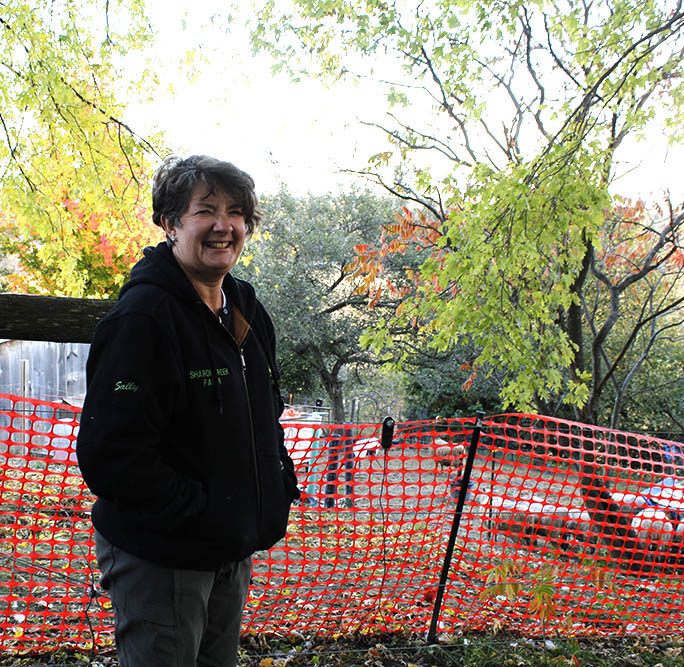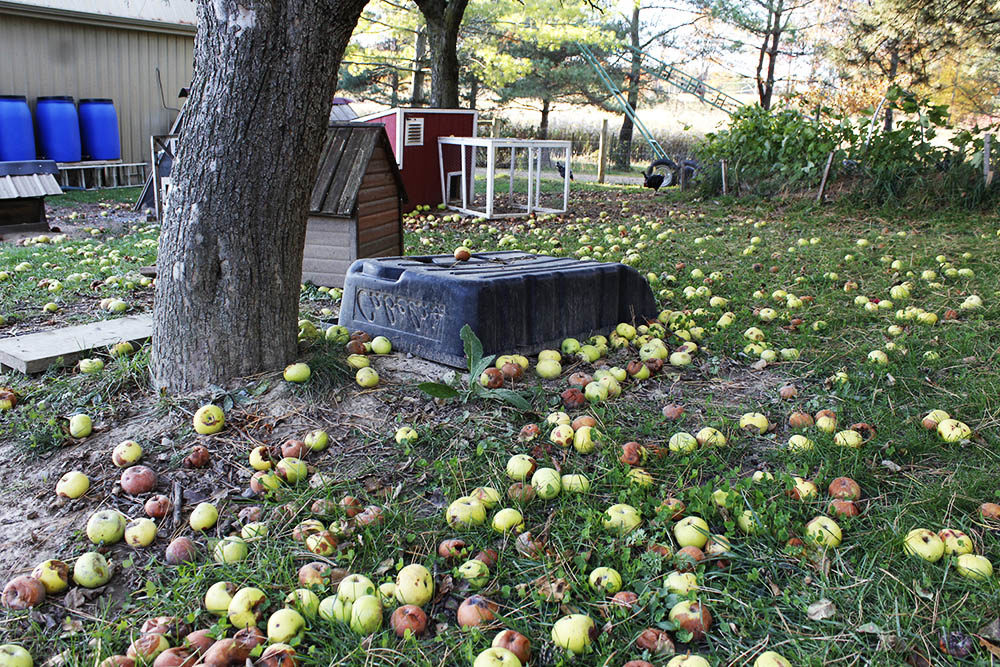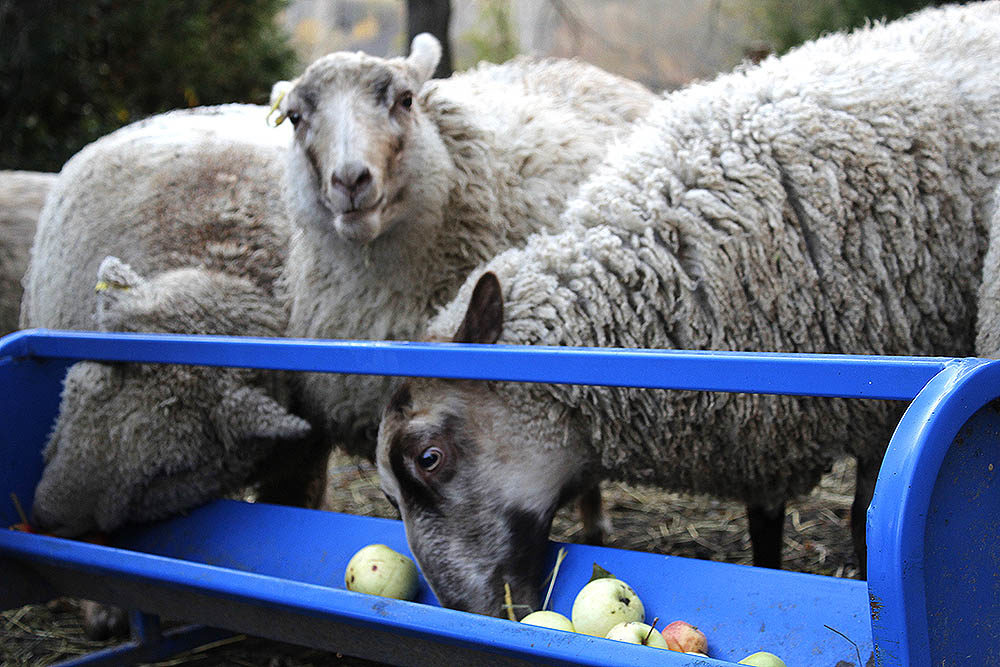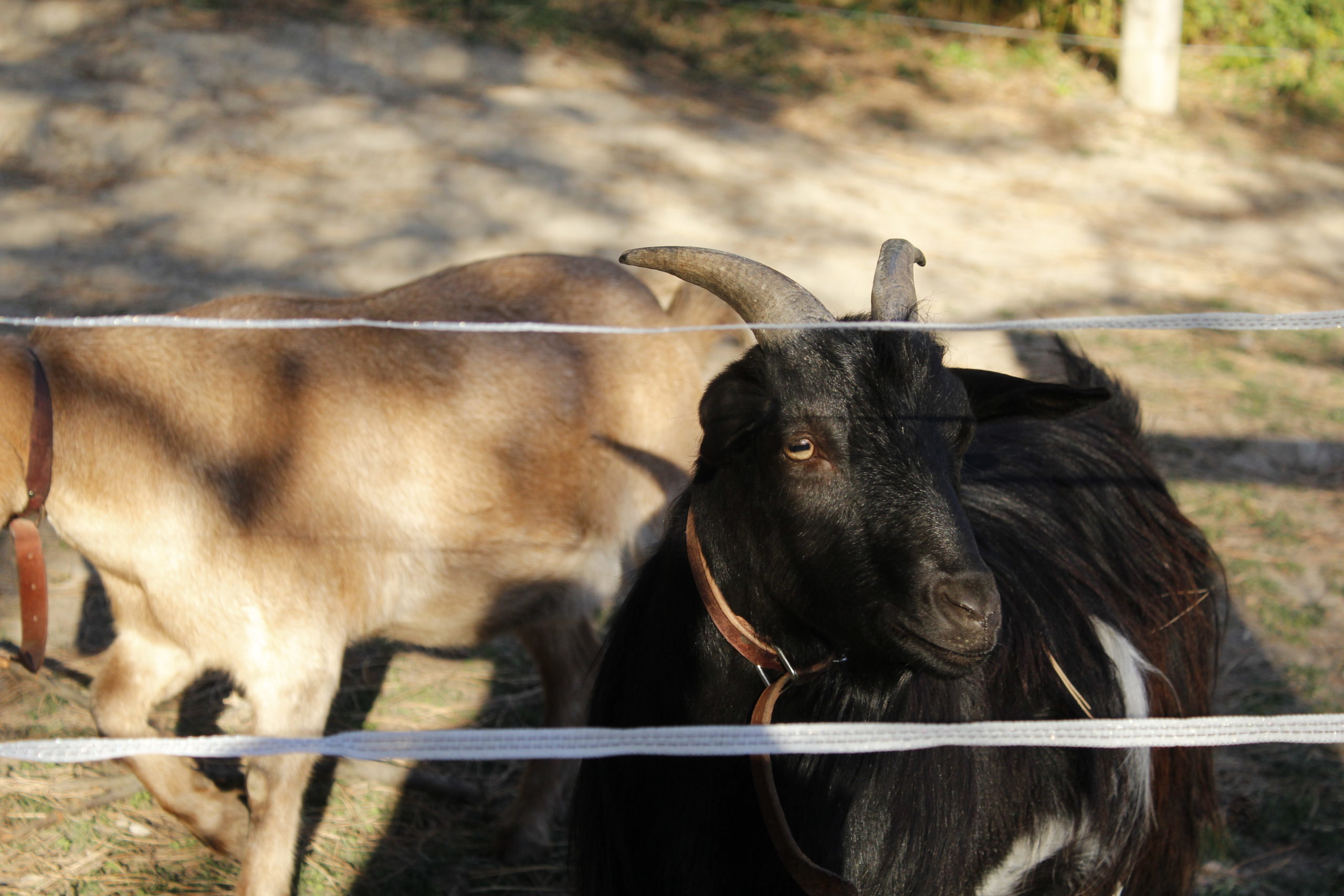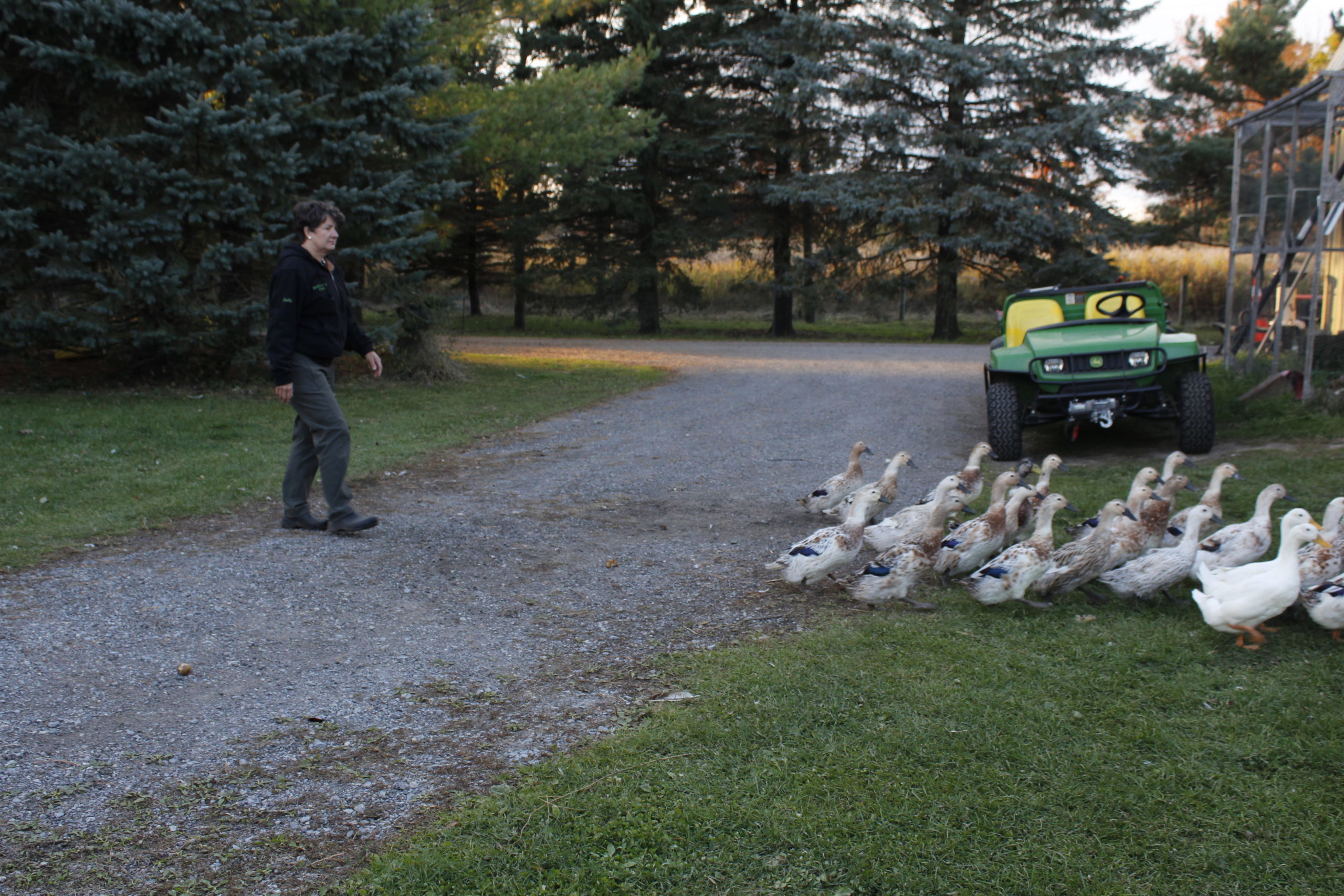SALLY SHEARMAN, with a bucket in her hand and a wide smile on her face, is ready for her evening chores. The 63-year-old, wearing a black hoodie with a green sign on the right that reads Sharon Creek Farm and Sally on her sleeve, goes to greet her animals. Walking past the alley of fallen red-green apples, she shows the vast farmland she built from scratch. The chilly October air does not deter her, as she works quickly to feed the chickens and her sheep, walk the ducks and play with her dog before it gets too dark. For Shearman, it was not always like that, she says as she settles on the couch in her cozy living room.
When things go wrong, it really goes wrong, she says. When the least weasel attacked her ducks, leaving blood and gore in the place, it was a little alarming. “We went down there at night with flashlights and had to take all the ducks out,” she says. “I treated them all, put them all in the back of my truck, and they stayed in there overnight,” Shearman says. After completing her chores for the day, she describes some challenges she faces as a farmer. Coming from a farming background in England, Shearman moved to Sharon Creek Farm in 2009. The 200-year-old house built by settlers in East Gwillimbury, Ontario,became her home, business, and life-long dream.
Although more opportunities are present for women to grow as farmers, purchase property and do what they love today, just a couple decades ago that was not the case, writes Bill Ganzel, founder of Ganzel Group Communications. Shearman, along with other women farmers and businesswomen, strives to break historical stereotypes of gender discrimination among women farmers along with battling and adjusting to environmental and economical shifts in our current developing society. With increasing opportunities for women to grow as farmers and entrepreneurs, they along with Shearman are not afraid to take that risk.
